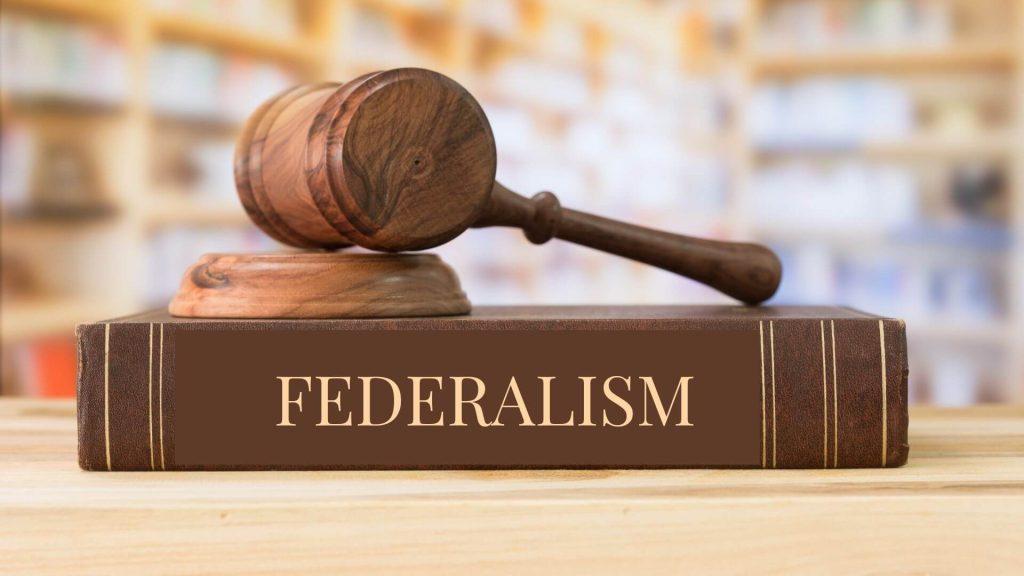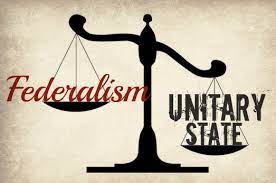
Civics Project On Federalism For Class 10th
Acknowledgment
This project on federalism in [Your Country] has been a journey of exploration and analysis, and its completion wouldn’t have been possible without the support and contributions of several individuals and resources.
First and foremost, I would like to express my gratitude to [Mentor/Supervisor’s Name], whose guidance and insights have been invaluable throughout this endeavor. Your expertise and encouragement have shaped the direction of this project and enhanced its overall quality.
I would also like to extend my thanks to [Colleague/Friend’s Name] for their collaboration and constructive discussions, which added depth to the comparative analysis and enriched the content.
Additionally, the project benefited greatly from the wealth of resources available through [Institution/Library Name]. The extensive literature and data provided a solid foundation for the historical background and comparative analysis sections.
Last but not least, I want to acknowledge the patience and support of my family and friends during the course of this project. Their understanding and encouragement have been crucial in navigating the challenges and maintaining focus.
This project is a culmination of collective effort, and I am truly grateful for the collaborative spirit and assistance received from everyone involved.
Thank you.
[Your Name]Introduction
Federalism, as a cornerstone of governance, plays a pivotal role in shaping the intricate dynamics of a nation’s political structure. In the context of [Your Country], the adoption of federalism stands as a historical landmark that has influenced the distribution of powers between the central government and regional entities. This project is a comprehensive exploration into the nuances of federalism, aiming to unravel its historical evolution, delve into its structural components, dissect the division of powers, and assess its profound impact on the lives of citizens.
As we embark on this journey, we will trace the historical roots of federalism in [Your Country], examining the critical events and contextual factors that led to its adoption. By understanding the historical foundation, we aim to provide a comprehensive backdrop to the evolution of federalism within the nation.
The structure of federalism is a complex tapestry that intricately weaves together the central and state governments. At the core of [Your Country]’s federal system lies a multi-tiered governance model, balancing power between the national and regional levels. Through this project, we will dissect the structural intricacies, shedding light on how the central government, headed by the [President/Prime Minister], operates in conjunction with the [Parliament/Congress] and the national judiciary, while regional governments function autonomously with their own governors, legislatures, and judiciaries.
The division of powers is a fundamental aspect that defines the efficacy of federalism. Exclusive powers reserved for the central government, concurrent powers shared between both levels, and residual powers under the jurisdiction of the states collectively form the framework for governance. Our exploration will delve into these delineations, providing a nuanced understanding of how responsibilities are distributed.
Federalism’s importance in [Your Country] is not merely theoretical; it holds practical advantages and poses challenges. This project will highlight how federalism accommodates regional diversity, allowing governance to align with local needs. Simultaneously, we will examine the efficiency it brings by enabling states to independently address region-specific issues. Challenges, such as [specific challenges], will also be scrutinized, emphasizing the need for continual evaluation and adaptation.
To enrich our understanding, we will draw comparisons with other federal systems globally, such as those in the United States, Canada, and Australia. This comparative analysis will elucidate the unique features of [Your Country]’s federalism, offering a broader perspective on diverse approaches to federal governance.
Furthermore, we will explore the role of citizens within the federal system, recognizing that active engagement, elections, advocacy, and democratic processes empower citizens to shape governance actively. Understanding how federalism influences citizens on a daily basis is integral to fostering a sense of civic responsibility.
In conclusion, this project aims to provide a comprehensive and insightful exploration of federalism in [Your Country]. By examining its historical roots, structural intricacies, division of powers, and impact on citizens, we seek to contribute to a deeper understanding of the nation’s governance model and its place in the global context.

Historical Background
The roots of federalism in [Your Country] extend back to [relevant historical events]. The embrace of federalism was a response to the imperatives of [historical context], with the system tailored to meet the diverse needs of the nation’s distinct regions. Pivotal events, such as [specific historical milestones], played a decisive role in shaping the present-day federal structure.
Structure of Federalism
At the heart of [Your Country]’s federal system lies a sophisticated structure that intricately balances authority between the central and state governments. The central government, helmed by the [President/Prime Minister], operates in tandem with the [Parliament/Congress] and the national judiciary. Concurrently, regional governments, each with its governors, legislatures, and judiciaries, function autonomously, culminating in a multi-tiered governance model.
Division of Powers
The effectiveness of federalism rests on the meticulous division of powers. Exclusive powers, exemplified by [examples], are reserved for the central government, while concurrent powers, typified by [examples], are shared jointly. Residual powers, encompassing [examples], fall under the jurisdiction of the states. This categorization ensures a coherent allocation of responsibilities.

Importance of Federalism
Federalism in [Your Country] boasts numerous merits. It accommodates regional diversity, ensuring governance aligns with local needs. This system fosters efficiency by empowering states to independently address region-specific issues. Nevertheless, persistent challenges, such as [specific challenges], necessitate ongoing evaluation and adaptation.
Case Studies
Scrutinizing case studies unveils the tangible implications of federalism. Noteworthy instances, like [examples], highlight how conflicts between the central and state governments found resolution within the federal system. These real-world scenarios provide valuable insights into the functionality of the system.
Comparative Analysis
Drawing parallels with other federal systems, such as those in the United States, Canada, and Australia, sheds light on the distinctive features of [Your Country]’s federalism. By dissecting both commonalities and divergences, a comprehensive view emerges, offering insights into the varied approaches to federal governance.
Role of Citizens
The active involvement of citizens within the federal framework holds paramount importance. Elections, advocacy, and democratic processes empower citizens to play a proactive role in shaping governance. Grasping how federalism influences the lives of citizens on a day-to-day basis is pivotal for fostering a robust sense of civic responsibility.
Conclusion
In the culmination of this project on federalism in [Your Country], we have navigated the historical evolution, structural complexities, and impact of this governance model on the lives of citizens. The journey through the corridors of history revealed the roots of federalism, tracing back to pivotal events and contextual imperatives that led to its adoption. This historical backdrop laid the foundation for a nuanced understanding of how federalism has shaped the governance structure in our nation.
The structural intricacies of [Your Country]’s federal system emerged as a multi-tiered governance model, finely balancing powers between the central and regional entities. As we delved into the functioning of the central government, the [President/Prime Minister], [Parliament/Congress], and the national judiciary, we simultaneously explored the autonomy and independence of regional governments with their distinct governors, legislatures, and judiciaries. This intricate web of governance contributes to the diversity and adaptability of the federal system.
The division of powers, a linchpin of federalism, became apparent through an analysis of exclusive, concurrent, and residual powers. This delineation ensures a systematic distribution of responsibilities, underscoring the effectiveness of the federal model. While federalism in [Your Country] holds distinct advantages in accommodating regional diversity and fostering efficiency, it is not without its challenges. The persistent issues, such as [specific challenges], underscore the need for ongoing evaluation and adaptive measures.
A comparative analysis with global counterparts like the United States, Canada, and Australia provided a broader perspective, elucidating the unique features of [Your Country]’s federalism. Understanding these diverse approaches to federal governance enhances our grasp of the nation’s distinct system within the global context.
The role of citizens emerged as a crucial aspect, with active engagement, elections, advocacy, and democratic processes empowering individuals to shape governance actively. Recognizing how federalism influences citizens on a daily basis is integral to cultivating a sense of civic responsibility.
In conclusion, this project serves as a comprehensive exploration, shedding light on the dynamic and intricate nature of federalism in [Your Country]. By unraveling its historical foundations, dissecting its structural components, and assessing its impact on citizens, we contribute to a deeper understanding of the nation’s governance model. Federalism stands not only as a historical decision but as a living, adaptive system that continually shapes the trajectory of our nation’s political landscape.
Certificate of Completion
[Student’s Name][Class/Grade Level]This is to certify that I, [Student’s Name], a [Class/Grade Level] student, have successfully completed the “Civics Project On Federalism For Class 10th.” The project explores the fundamental principles and key aspects of the chosen topic, providing a comprehensive understanding of its significance and implications.
In this project, I delved into in-depth research and analysis, investigating various facets and relevant theories related to the chosen topic. I demonstrated dedication, diligence, and a high level of sincerity throughout the project’s completion.
Key Achievements:
Thoroughly researched and analyzed Civics Project On Federalism For Class 10th
Examined the historical background and evolution of the subject matter.
Explored the contributions of notable figures in the field.
Investigated the key theories and principles associated with the topic.
Discussed practical applications and real-world implications.
Considered critical viewpoints and alternative theories, fostering a well-rounded understanding.
This project has significantly enhanced my knowledge and critical thinking skills in the chosen field of study. It reflects my commitment to academic excellence and the pursuit of knowledge.
Date: [Date of Completion]Signature: [Your Signature] [School/Institution Name][Teacher’s/Examiner’s Name and Signature]
In order to download the PDF, You must follow on Youtube. Once done, Click on Submit
Follow On YoutubeSubscribed? Click on Confirm
Download Civics Project On Federalism For Class 10th PDF






